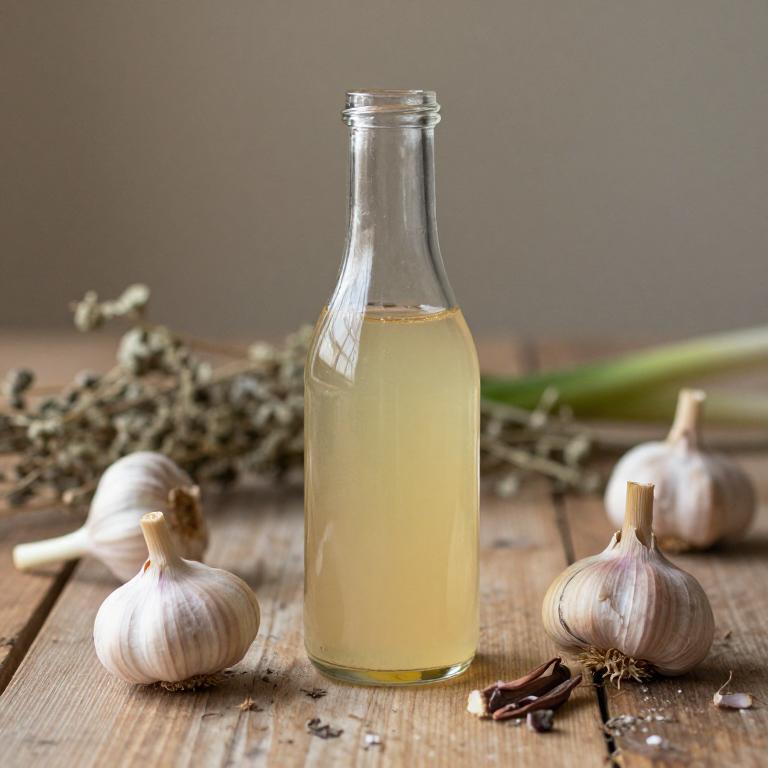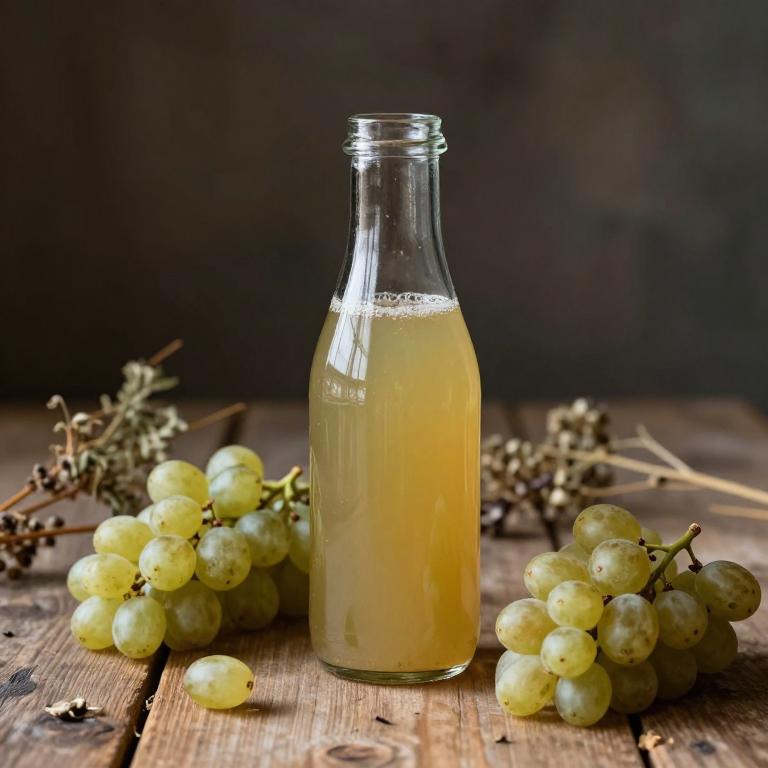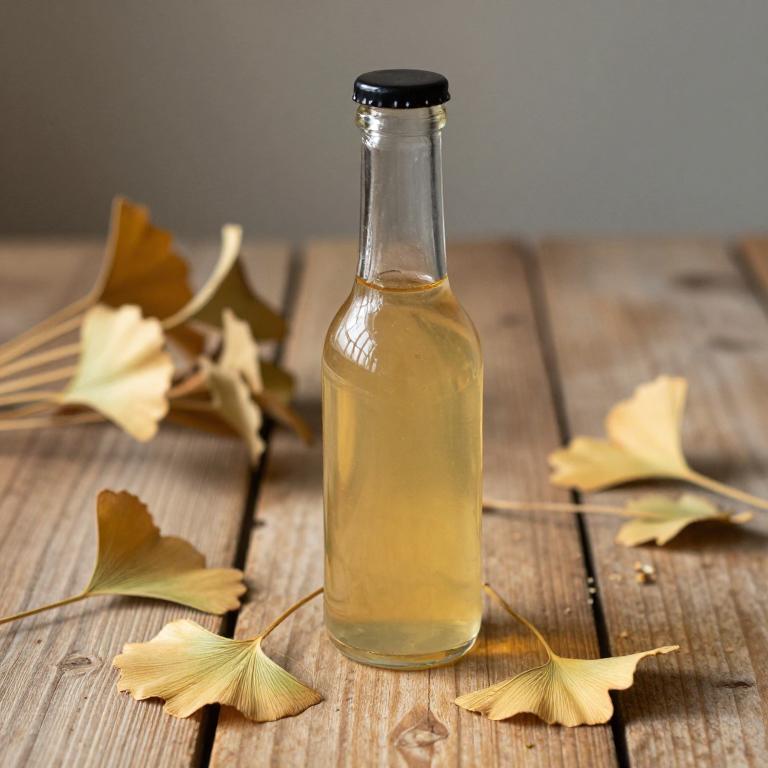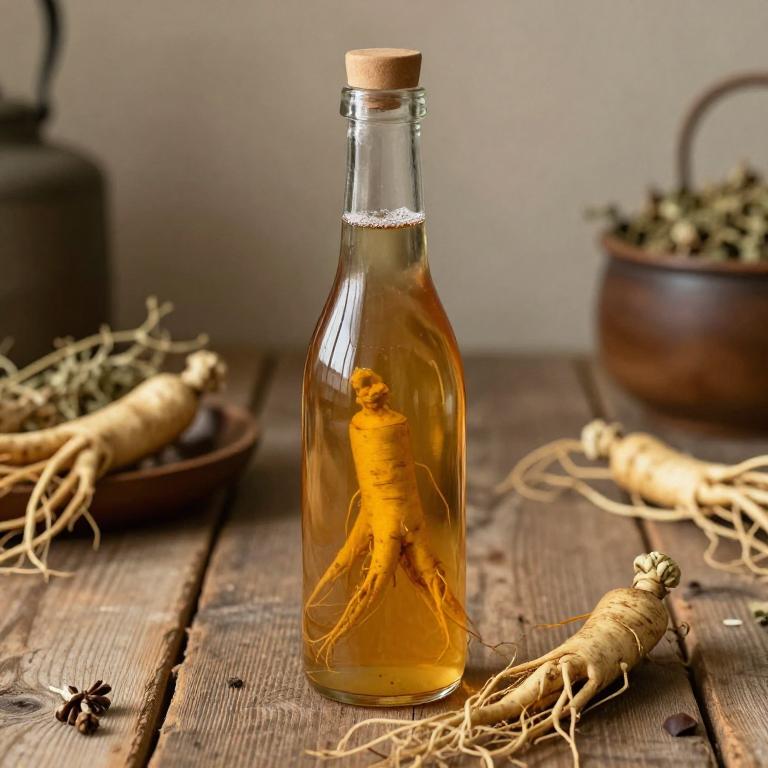10 Best Herbal Juices For Arteriosclerosis

Herbal juices have gained attention for their potential role in managing arteriosclerosis, a condition characterized by the thickening and hardening of artery walls.
Certain herbs, such as garlic, ginger, and turmeric, are believed to possess anti-inflammatory and antioxidant properties that may help reduce plaque buildup and improve blood flow. These juices can support cardiovascular health by lowering cholesterol levels and blood pressure, which are key risk factors for arteriosclerosis. However, while some studies suggest beneficial effects, more research is needed to fully understand their efficacy and safety.
It is important to consult with a healthcare professional before incorporating herbal juices into a treatment plan for arteriosclerosis.
Table of Contents
- 1. Garlic (Allium sativum)
- 2. Ginger (Zingiber officinale)
- 3. Common grape (Vitis vinifera)
- 4. Salvia (Salvia officinalis)
- 5. Stinging nettle (Urtica dioica)
- 6. Ginkgo (Ginkgo biloba)
- 7. Turmeric (Curcuma longa)
- 8. Panax ginseng (Panax ginseng)
- 9. Rosemary (Rosmarinus officinalis)
- 10. Dog rose (Rosa canina)
1. Garlic (Allium sativum)

Allium sativum, commonly known as garlic, has been widely studied for its potential cardiovascular benefits, including its role in managing arteriosclerosis.
The active compounds in garlic, such as allicin, possess antioxidant and anti-inflammatory properties that may help reduce the buildup of plaque in arterial walls. Herbal juices made from fresh garlic can provide a concentrated source of these beneficial compounds, supporting overall arterial health. Some research suggests that regular consumption of garlic juice may help lower blood pressure and improve lipid profiles, which are key factors in preventing arteriosclerosis.
However, while garlic shows promise, it should be used as a complementary therapy under the guidance of a healthcare professional for optimal results.
2. Ginger (Zingiber officinale)

Zingiber officinale, commonly known as ginger, has been traditionally used for its medicinal properties, and recent studies suggest that ginger herbal juices may offer benefits in the management of arteriosclerosis.
The bioactive compounds in ginger, such as gingerol and shogaol, possess anti-inflammatory and antioxidant properties that can help reduce oxidative stress and inflammation, key contributors to arterial plaque formation. Regular consumption of ginger juice may help improve blood circulation and lower cholesterol levels, thereby supporting cardiovascular health. However, while preliminary research is promising, more clinical trials are needed to confirm its efficacy and establish safe dosage guidelines for long-term use.
As a complementary therapy, ginger juice should be used under the guidance of a healthcare professional, especially for individuals with existing cardiovascular conditions.
3. Common grape (Vitis vinifera)

Vitis vinifera, commonly known as the grape vine, has been studied for its potential cardiovascular benefits, particularly in the context of arteriosclerosis.
The herbal juices derived from Vitis vinifera, especially those containing resveratrol and other polyphenols, have shown promise in reducing oxidative stress and inflammation, which are key contributors to arterial plaque formation. These compounds may help improve endothelial function and reduce the buildup of LDL cholesterol in the arteries. Some preliminary research suggests that regular consumption of Vitis vinifera-based herbal juices could support overall cardiovascular health.
However, more clinical studies are needed to fully understand their efficacy and safety in treating or preventing arteriosclerosis.
4. Salvia (Salvia officinalis)

Salvia officinalis, commonly known as sage, has been traditionally used for its medicinal properties, and recent research suggests that its herbal juices may offer potential benefits in managing arteriosclerosis.
The plant contains bioactive compounds such as flavonoids, rosmarinic acid, and essential oils, which have demonstrated antioxidant and anti-inflammatory effects. These properties may help reduce oxidative stress and inflammation, key contributors to the development of arterial plaque. Preliminary studies indicate that regular consumption of sage juice could support vascular health by improving endothelial function and reducing lipid peroxidation.
However, more clinical trials are needed to fully establish its efficacy and safety in the context of arteriosclerosis treatment.
5. Stinging nettle (Urtica dioica)

Urtica dioica, commonly known as stinging nettle, has been explored for its potential health benefits, including its role in supporting cardiovascular health.
Some studies suggest that the bioactive compounds in stinging nettle, such as flavonoids and minerals like iron and magnesium, may help reduce oxidative stress and inflammation, which are key factors in the development of arteriosclerosis. Herbal juices made from fresh or dried stinging nettle are often consumed to promote detoxification and improve circulation, which may indirectly support arterial health. However, while preliminary research is promising, more clinical studies are needed to confirm its efficacy in treating or preventing arteriosclerosis.
As with any herbal remedy, it is important to consult a healthcare professional before incorporating stinging nettle juice into a treatment plan for cardiovascular conditions.
6. Ginkgo (Ginkgo biloba)

Ginkgo biloba herbal juices are often used for their potential cardiovascular benefits, including support for individuals with arteriosclerosis.
These juices contain flavonoids and terpene lactones, which are believed to improve blood circulation and reduce oxidative stress. Some studies suggest that ginkgo biloba may help prevent the buildup of plaque in arteries by enhancing nitric oxide production. However, while preliminary research is promising, more clinical trials are needed to confirm its efficacy in treating arteriosclerosis.
It is important to consult a healthcare professional before using ginkgo biloba as a supplement, especially for those with existing cardiovascular conditions.
7. Turmeric (Curcuma longa)

Curcuma longa, commonly known as turmeric, contains a bioactive compound called curcumin, which has been studied for its potential benefits in preventing and managing arteriosclerosis.
Research suggests that curcumin may help reduce oxidative stress and inflammation, both of which are key contributors to the development of arterial plaque. Herbal juices made from turmeric can provide a concentrated source of curcumin, supporting cardiovascular health when consumed regularly. However, the absorption of curcumin is limited, so combining it with black pepper or healthy fats can enhance its bioavailability.
While turmeric juice shows promise as a complementary therapy, it should not replace conventional medical treatments for arteriosclerosis without consulting a healthcare professional.
8. Panax ginseng (Panax ginseng)

Panax ginseng, a widely used adaptogenic herb, has shown potential in supporting cardiovascular health, particularly in the context of arteriosclerosis.
Its active compounds, such as ginsenosides, may help reduce oxidative stress and inflammation, which are key contributors to arterial damage. Some studies suggest that Panax ginseng herbal juices could improve blood circulation and lower LDL cholesterol levels, thereby potentially slowing the progression of arterial plaque buildup. However, while preliminary research is promising, more clinical trials are needed to confirm its efficacy and safety in treating arteriosclerosis.
As with any supplement, it should be used under the guidance of a healthcare professional, especially for individuals with existing cardiovascular conditions.
9. Rosemary (Rosmarinus officinalis)

Rosmarinus officinalis, commonly known as rosemary, contains bioactive compounds such as rosmarinic acid, carnosic acid, and flavonoids, which have been studied for their potential cardiovascular benefits.
These compounds exhibit antioxidant, anti-inflammatory, and antiplatelet properties that may help reduce oxidative stress and inflammation, both of which are key factors in the development of arteriosclerosis. Some preliminary research suggests that rosemary extracts may support vascular health by improving endothelial function and reducing arterial stiffness. However, more clinical studies are needed to confirm its efficacy as a therapeutic agent for arteriosclerosis.
As a complementary approach, rosemary herbal juices may be considered alongside conventional treatments under medical supervision.
10. Dog rose (Rosa canina)

Rosa canina, also known as dog rose, has been traditionally used for its rich content of antioxidants, vitamins, and bioflavonoids, which may support cardiovascular health.
Herbal juices made from Rosa canina berries are believed to help reduce oxidative stress and inflammation, factors that contribute to the development of arteriosclerosis. These juices may promote the repair of arterial walls and improve blood flow by supporting the integrity of blood vessel linings. While more research is needed, some studies suggest that the polyphenols in Rosa canina can inhibit the formation of arterial plaques.
As a complementary therapy, Rosa canina herbal juice may be beneficial when used alongside conventional treatments for arteriosclerosis under medical supervision.